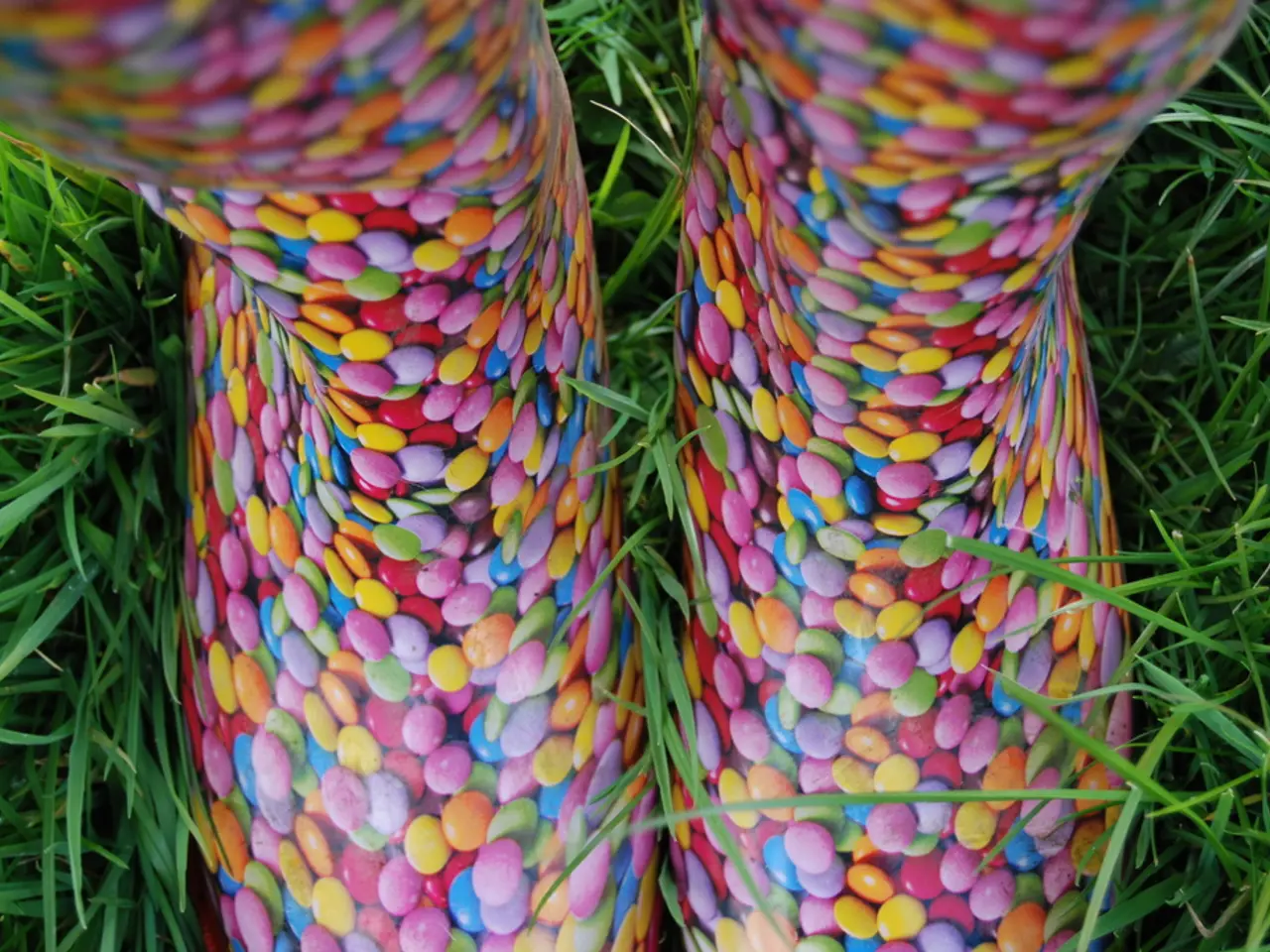Preserving and Tending to Your Precious Gems
Caring for Your Gemstones: A Comprehensive Guide
Taking care of your gemstone jewelry is essential to ensure they maintain their beauty and value for years to come. Here are some tips to help you preserve the physical and metaphysical qualities of your gemstones.
Pool or Ocean Dips
When you're ready for a refreshing dip, remember to remove your gemstone jewelry. Chlorine, salt water, and mechanical damage can harm your precious stones.
Storage and Handling
Storing gemstones separately is crucial to prevent scratches and other forms of mechanical damage. Use a jewelry box with individual compartments or soft pouches to keep your pieces safe. Softer stones should be kept away from harder ones to avoid friction-induced scratches.
Chemical Hazards
Harsh chemicals like bleach or ammonia, acidic compounds like vinegar and lemon juice, and abrasive materials like toothpaste or baking soda can harm your gemstones. Always remove your jewelry before applying lotions, perfumes, or using household cleaning chemicals.
Sunlight Exposure
Some gemstones, like amethyst and citrine, can fade if exposed to direct sunlight for extended periods. Store them in a dark place, away from windows or other sources of natural light, to preserve their vibrant colors.
Amber and Opals
Amber and opals, having organic origins, are sensitive to both heat and chemicals. Even natural oils from your skin can cause changes in color over time.
Specific Care for Amethyst
Amethysts require gentle care. Use a soft, lint-free cloth and a mild, non-abrasive soap with lukewarm water to clean them. Soak the jewelry for a few minutes, then use a soft-bristled toothbrush to clean dirt from crevices. Rinse with clean water and air dry. Avoid steam cleaning, harsh chemicals, and ultrasonic cleaners.
General Care Tips
- Avoid water extremes and chemicals. Amethysts can tolerate water but should not be exposed to very hot or cold water as temperature shocks can cause color changes. Also, avoid chemicals such as household cleaners, and remove jewelry before swimming, bathing, or doing dishes.
- Prolonged exposure to direct sunlight can fade amethyst’s color. Store amethyst jewelry in a cool, dry, and dark place away from sunlight when not in use.
- Keep amethyst pieces in a soft pouch or padded jewelry box, ideally in individual compartments to avoid scratches or tangling. Store in an environment with controlled humidity and temperature to preserve long-term quality.
- Check regularly for cracks, chips, or loose settings and have these repaired promptly by a professional jeweler to prevent further damage.
- Some prefer dry or gentle cleansing methods like moonlight, Reiki, or selenite to maintain the energetic properties of amethyst while avoiding harsh physical cleansers such as salt water unless certain the stone and metal are safe.
Routine Maintenance
Routine maintenance is crucial for gemstone care. Regular cleaning, inspections, and professional check-ups help maintain their luster and value. A bi-weekly cleaning is recommended for daily-worn gemstones, while gemstones worn occasionally may only need a monthly cleaning.
Unique Gemstones
Each gemstone is unique in its physical and chemical properties. Pearls, opals, and turquoise, being soft and porous gemstones, require cleaning with a damp cloth instead of soaking in water, and mild detergents should be avoided. Treated gemstones, like emeralds, often require special care to maintain their enhanced features, as harsh cleaners can strip away any treatments.
Traveling with Gemstones
When traveling, using a secure case to prevent any accidental bumps or drops is recommended.
Temperature and Light Sensitivity
Extreme temperatures and prolonged exposure to sunlight can adversely affect gemstones. Sudden temperature changes can cause some stones to crack, and certain gemstones can fade if exposed to direct sunlight for extended periods.
Stacking and Professional Assessments
Regularly refraining from stacking rings or bracelets and providing professional assessments can also help maintain the quality of your gemstones.
Gemstones and Their Reactions
Gemstones can react differently when exposed to various elements like heat, light, and chemicals. Understanding each gemstone's unique properties is key to providing proper care.
Taking care of your gemstones extends beyond jewelry, as fashion-and-beauty accessories like amber and opals should be handled with care to preserve their organic origins. For education-and-self-development, it's important to understand each gemstone's unique properties and reactions to elements like heat, light, and chemicals to provide proper care.




